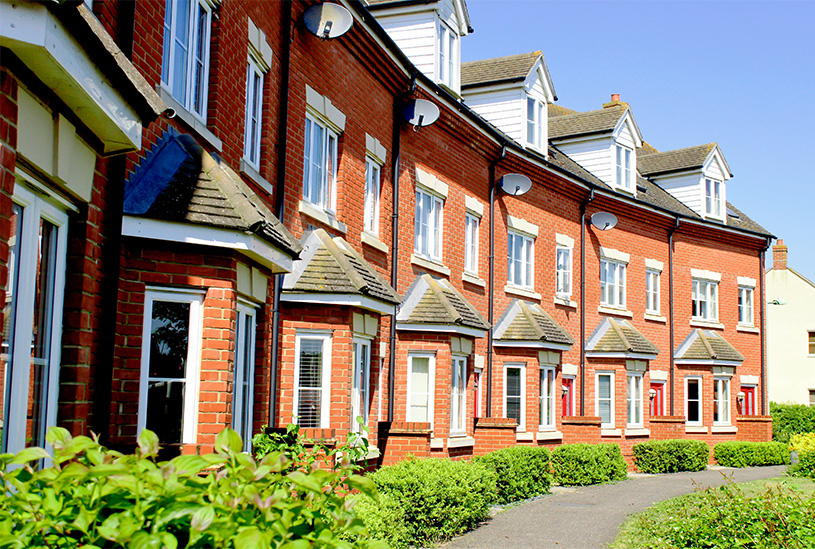A local council reportedly suggests that a controversial policy will lead to a 5% reduction in property values. Gwynedd Council in Wales recently concluded a consultation regarding the potential implementation of Article 4 Direction powers. If approved, this would require local residents to obtain planning consent for converting their properties into holiday rentals or Airbnb-style short-term lets.
The Welsh Government had introduced measures last year to curb the proliferation of second homes and short-term rentals. This included amending planning legislation to grant local authorities, like Gwynedd, the authority to employ Article 4 Directions to regulate properties used as second homes or holiday accommodations. Gwynedd stands as the first council to explore this option.
According to the BBC, the council is now acknowledging that there may be an “inevitable” decrease in local property prices if the policy is implemented next year, potentially up to a five percent reduction.
In a report obtained by the BBC, intended to provide justification for the proposed action, the council states: “It is highly likely that the introduction of an Article 4 Direction, which would regulate the use of residential properties, could exert a [potentially minimal] influence on property values in the open market.”
The report explains that property values might decline because the new regulations would limit their potential uses. It further states: “Therefore, it is worth noting that such a restriction could facilitate the availability of more affordable housing in the property market … it is unavoidable that the Article 4 Direction would produce a comparable impact on property prices.”
Additionally, Gwynedd’s council has already introduced a 150 per cent council tax surcharge for second homeowners.
A Facebook group consisting of 1,000 members, opposed to the council’s plan, has accused the council of taking significant risks with people’s property assets.

In a recent open letter published in the local Daily Post newspaper and on various websites, Martin Lewthwaite, a Gwynedd agent with 50 years of experience, addressed residents. He cautioned that while property owners could theoretically apply for planning consent to convert their primary residence into a second home or holiday let, this would likely be a futile endeavor.
Lewthwaite elaborated, “It appears highly unlikely that such permissions would be granted given the council’s strong opposition to second homes in Gwynedd. While I can somewhat comprehend their motivations, they seem to overlook the fact that these proposals will affect local individuals who may wish to sell their property for various reasons. A property often represents one’s most valuable asset. These proposals will restrict your right to sell to any potential buyer.”
He further emphasized the potential adverse consequences of the council’s policy, stating that it would diminish the marketability and value of properties by limiting the potential buyer pool.
The consultation period for this matter concluded this week, with the council expected to announce its decision next year.
Impact on Local Economy
The potential decrease in property values could have a broader impact on the local economy. A drop in property prices may discourage property investment and development in the area. This, in turn, could affect job creation and economic growth, as the construction and real estate sectors often play a significant role in local economies.
Affordability and Housing Market
While the policy aims to make housing more affordable for local residents, it might also have unintended consequences. A reduction in property values could lead to lower property tax revenues for the council, potentially affecting its ability to provide essential services. Moreover, it may create challenges for homeowners who rely on the equity in their properties for financial security.
Local Housing Market Dynamics
The proposed policy could disrupt the dynamics of the local housing market. Property owners may be hesitant to invest in the area if they anticipate a decline in property values. This, in turn, could lead to a shortage of rental properties, impacting those who rely on renting due to personal circumstances or work-related reasons.
Balancing Local Interests
The situation in Gwynedd highlights the challenge faced by local authorities in balancing the interests of various stakeholders. While the policy aims to address the concerns of residents struggling to find affordable housing, it also impacts property owners and potential investors. Striking the right balance between these interests is crucial for effective governance.
Property Ownership Rights
The debate over property rights and restrictions also comes into play. Property owners may argue that their rights to use their properties as they see fit are being curtailed by the proposed policy. Finding a solution that addresses housing affordability concerns without infringing on property ownership rights is a complex task for local authorities.
The Future of Second Homes
The outcome of Gwynedd’s decision may set a precedent for other regions facing similar challenges with second homes and short-term rentals. It could prompt other local councils to explore similar measures to regulate their property markets, raising questions about the long-term viability of second homes in some areas.
In conclusion, the Gwynedd Council’s proposed policy has ignited a broader conversation about housing affordability, property rights, and the economic implications of such measures. The decision it makes in the coming year will not only impact property values but also shape the future of housing policies in the region and potentially beyond.
Read more Property Investing News HERE
